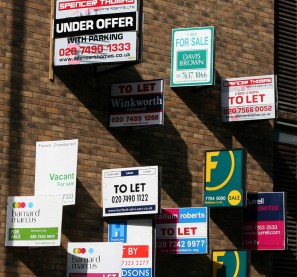Prof Nouriel Roubini, Stern School of Business (2009)
When he realised there was a problem
I start to get worried about the US economy and the financial system in 2006 when I started the housing market and I saw a bubble that was getting out of control, that was unsustainable both in terms of increasing home prices, excesses in the housing market and in mortgages. It was pretty clear that there was a housing bubble in the United States. Real home prices had doubled between 1996 and 2006, when historically prices of home never increase more than inflation, so the doubling was not that sustainable, and while in 2004 and 2005 the bubble was continuing, so one could not predict a bursting of it. By the middle of 2006 it was clear that the production of new homes had increased even more than the speculative demand, that housing starts and measures of production were becoming toppy, new home sales were also flattening out and also the price increases were slowing down. So it was clear that that was the tipping point for this housing bubble. And once a bubble goes into reverse and demand falls below supply, then prices start to move downward and then there is the unravelling of a boom and bubble into a bust and a crash.
On why no-one listened
I wrote about my concerns in the summer of 2006 and I gave a speech in front of a few hundred staff for the International Monetary Fund in early September. At that time there was clear scepticism because I was expecting the worst housing recession since the Great Depression, that home prices would fall at least 20%, that housing starts and demand would fall by at least 50%. It turned out I was too optimistic ex-post, quantities fell by 80%, home price fell more than 25% and they're still falling more than 20% annualised rate. And I expected that this housing bust is going to lead then to a banking and financial crisis as homeowners would default on their mortgages, so banks would go bust. That Fannie and Fred, these two major semi-public mortgage giants would go into bankruptcy, and that the credit crunch and the financial crisis would lead to a recession by some time in 2007, and guess what, the recession did start in December of 2007. But at that time people were talking about high growth, about the Goldilocks economy, about low inflation, about high growth and about a minor housing bubble sort of kind of deflating gently. So people were quite sceptical about these kind of predictions.
On Alan Greenspan and bubbles
The policy action taken by Greenspan on a number of occasion exacerbated these moral hazard or expectation of a bailout. It occurred first of all after the stock market crash in 1987, when the Fed aggressively eased and gave the impression that when things go wrong and there is a bubble, the Fed is going to come to the rescue, that was the time when people started to talk about this Greenspan put, meaning that the Fed would put a floor on falling stock markets, and the philosophy of the Fed was if there is an asset bubble on the way up, you don’t do anything about it because they claim it’s hard to see one and it’s like trying to prick a bubble, it’s going to be too dangerous, and when the housing and other bubbles burst, the argument was then you have to ease aggressively to avoid the collateral damage from Wall Street to Main Street, meaning the bursting of the bubble may lead to financial shocks that hurt the economy.
So this asymmetric response, not doing anything on the way up to try to prevent the bubble and then easing implied that investors believed that the Fed will always come to the rescue. It happened in ’87 and then after the tech bubble went bust, you know, the Fed eased again, Greenspan and Fed had talked in ’96 about irrational exuberance in tech stocks and did nothing about it, and after the tech bubble burst they cut rates aggressively down to 1% and they created the seeds of the next bubble, this housing and credit bubble, and now this one has gone bust and the Fed has gone back again to zero interest rates. So there is worries that now we’re going to create another bubble after having been a serial bubble blower for twenty years now.
5’05”

Rate and Review
Rate this video
Review this video
Log into OpenLearn to leave reviews and join in the conversation.
Video reviews
Jenni Miles - 15 March 2019 8:35pm
It is also worth watching The Big Short film as, while also entertaining it shows the main other people who forsaw these events in a rather acurate way.
Dave Elliott - 22 November 2020 6:03pm
Hi Jennifer,
I realise I am very late to the party, but I had to write to concur with you. I am a bit of a nerd so this film appealed to me anyway. However, my family, less nerdy you'll be pleased to know, have watched it, enjoyed it and then had their own personal 'crashes' as the realisation of what had happened.
I would wholeheartedly recommend this film for anyone that likes a gripping story, great screen writing and acting that is fantastic by a cast of actors that really earned their pay checks during the making of this film.
Many thanks all. I hope you are well and keeping safe during these difficult times.
Cheers,
Dave